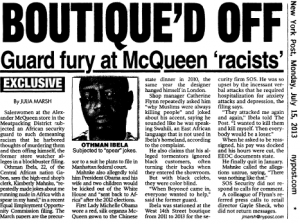UPDATE: On July 16, 2024, the Court held a hearing on Defendant’s Motion to Compel Arbitration and Dismiss Plaintiff’s Constructive Discharge claims. At the end of the arguments, the Court denied Defendant’s motion in full, and subsequently issued a text Order:
Minute Entry for proceedings held before Judge Robert N. Chatigny: Telephone Conference/Motion Hearing held on 7/16/2024 denying [29] MOTION to Compel Arbitration of Plaintiff’s Amended Complaint and Motion to Dismiss Constructive Discharge Claims filed by SCA Pharmaceuticals, LLC, consistent with the comments made during the telephone conference.
The Court, during the telephone conference, stated in essence that Defendant “could not have it both ways” with respect to its contention that there was a valid and enforceable arbitration agreement situated within an Employee Handbook that specifically disclaimed that it created contractual/legal rights of any kind. In addition, the Court noted that because the employer retained for itself the right to amend or alter the rules in the Handbook at any point, if there were a contract it would be “illusory” and therefore unenforceable. Finding that there was no agreement to arbitrate, the Court did not need to reach the question whether the End Forced Arbitration Act precluded arbitration of any of Plaintiff’s claims, noting any ruling would be dicta, and that the Second Circuit Court of Appeals was poised to rule on the issue in the near future. And the Court refused to dismiss Plaintiff’s Constructive Discharge claim, determining the viability of the claim would be best addressed at summary judgment with a full record of facts.
 Sexual Harassment Lawyer Blawg
Sexual Harassment Lawyer Blawg



